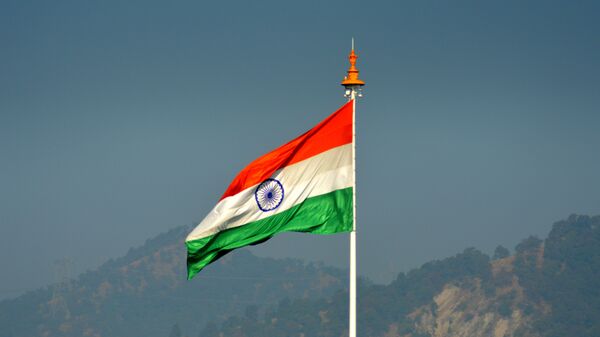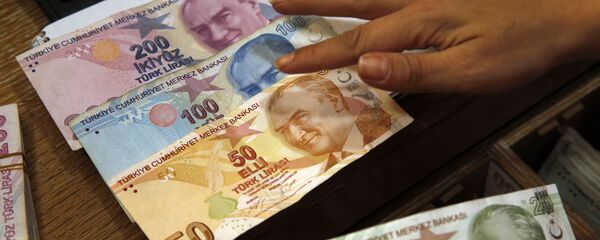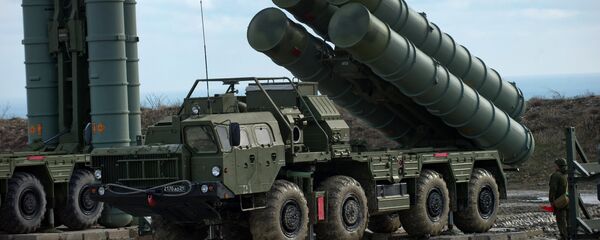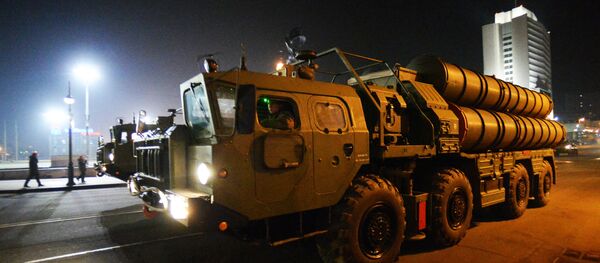Sputnik: According to reports, India's commerce industry has indicated that India accepted the move. Why is that, from your point of view?
To that extent, I think there is the solution that India and the US need to do more trading, the current levels are pretty low as compared to the other trading partners. But the bilateral trade increase has been one of the major trust areas, in order to have economic interdependence, much like the Japanese, the Koreans, the Chinese, the ASEAN countries or the European countries have had in trade with the United States. India is maintaining over seven percent growth rate and this is quite natural, I think.
Since we are starting from almost scratch, that is about $250 billion of overall exports and imports, which is not really much in the GDP figure; and the US, obviously, wants to have more of this share. The US understands that India needs to import more from the US. So, one of the things that has happened in the region is the shale gas resolution in the US, so LND exports are one of the items that the US is suggesting to India, and this is to bridge the trade deficit. [This is also] the alternative solution to not import more from Iran, where there is the nuclear deal that has now been questioned by the Trump administration.
Srikanth Kondapalli: One of the crucial differences is the trade deficit. Unlike China, Japan, Korea, ASEAN, or the trans-Atlantic [partners], we don't have much of a trade deficit with the US — it's around $20-25 billion, which means we gain from trading with the US compared to over $300 billion from the Chinese or some other figures from Japan, Korea and ASEAN put together. So, we don't have much surpluses, although the $200-odd billion surplus is still being subjected for a pure business kind of relationship. So, that is a concern.
READ MORE: India Doesn't Have Same Bargaining Power With US as China — Indian Economist
Sputnik: The US President has been pushing a rather hard rhetoric against China and India; we understand this strategy. In your view, is this going to lead to closer cooperation between the two Asian giants?
Srikanth Kondapalli: Indeed, there is concern both in China and in India, they both have made a common plan in the G20, in the BRICS meetings, in the RNC [Russia-India-China triangle] as well as in the WTO negotiations. So, there is a concern and China and India are getting together in terms of countering what they see as trade protectionist trends and, secondly, restrictions in terms of investments. The World Bank Chief has suggested that global investors are sitting on something like $4 trillion and they are not investing in the emerging nations like the BRICS. There is also a concern not just about trade, that is, the tariff increases, but also the investment profile. Prime Minister Modi and President Xi Jinping addressed the Davos meeting, and the common theme in their speeches was to counter trade protectionist trends.
Sputnik: The US is India's top export destination. What impact can this have on India's economy now and what measures can India take, if any, to reduce the damage this can cause?
Srikanth Kondapalli: This is still not clear, how things will unfold between the US and India, but there is, obviously, a major concern in India about the trading relations. Although we aren't on the very high scale of differences with the US, because the US has bigger trading partners like the European Union, China, Japan and Korea, so, we are not high on the radar screen of the US in terms of the trade tariffs and so on.
Having said that, it does hit the Indian economy, if you have a lot of trade protectionist trends. So, there is the Indian Prime Minister's suggestion that the US should be much more open to the Indian products, especially as we are speaking of the growth rates. The US is walking away from the TPP [Trans-Pacific Partnership] and the expectation is that a de-globalisation, in fact, is happening, which is bad news for India or other countries which are just emerging based on exports and imports.
The views expressed in this article are those of the speaker and do not necessarily reflect those of Sputnik.






